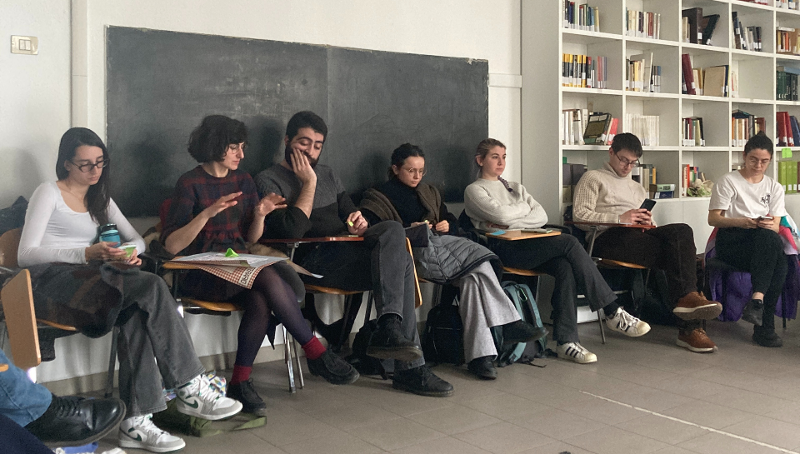Voices of Participation: Ideas, Practices, and Barriers from Across Europe
Altera launched the second phase of Ways of Europe, which envisions the European Union as an open laboratory of democratic participation

On February 21, 2025, Altera APS hosted a participatory workshop inspired by the Conference on the Future of Europe, engaging citizens in a collective dialogue on three key themes for the future of the Union. It was the first Italian event in the second phase of Ways of Europe, aimed at gathering democratic participation experiences from six European countries.
The Conference on the Future of Europe was a democratic experiment launched by European institutions between 2021 and 2022, with the goal of directly involving citizens in shaping the Union’s priorities. Public debates, digital consultations, and deliberative forums created a widespread and inclusive process, culminating in 49 proposals and 326 concrete measures addressed to EU institutions.
At the heart of this process were the Citizens’ Panels—representative groups of citizens from across Europe who worked together to develop recommendations on fundamental issues. The context of the Altera event was no coincidence: building on the experience of the Conference, Altera proposed a collective workshop to explore and discuss three key priorities that emerged from the process: equal access to healthcare, demographic transition (with a focus on work, economy, and social justice), and the EU’s role as a global actor for peace and security.
Participants engaged in small group discussions followed by plenary sessions, combining direct exchange with creative reflections and guided debates. What emerged was a complex and nuanced picture: topics ranged from mental health rights and preventive care, to the need for a more accessible and nonprofit-based healthcare system, to fair working conditions, lifelong learning, and the demand for transparent, responsive institutions more attuned to citizens’ voices.
As with the Conference on the Future of Europe, this event emphasized that participation must not be episodic, but rather a structured and accessible practice. The meeting concluded with a collective mapping of active participation practices from the territories represented by participants—a first step toward a shared vision of a Europe built from the ground up.
A European Laboratory for Participation
Altera’s event is just one of several initiatives in the second phase of Ways of Europe, involving over 300 participants in six countries (Italy, France, Spain, Hungary, the Netherlands, Romania), and representing at least seven national backgrounds. These gatherings, organized by partners including Arci Solidarietà, Association Community, Faktor Terminál, Subjective Values Foundation, Pere Closa, WIJKZ, JEF, and Altera itself, aim to collect and compare practices, obstacles, and visions of participation across Europe.
Through local workshops, artistic performances, debates, and informal exchanges, each partner has created a space for listening and sharing within their own community. The guiding question remains the same: why do some people feel excluded from democratic processes?
Each event begins with an analysis of existing participation practices—also building on the legacy of the previous Words of Europe project—before actively involving key target groups: young people, migrants, minorities, people from diverse socioeconomic backgrounds, civil society organizations, and local institutions.
The work conducted so far shows that the barriers to participation are not only technical or legal, but often cultural, symbolic, and structural: from a lack of trust in institutions to the absence of tools for making one’s voice heard, through to linguistic barriers, discrimination, or economic precarity. A truly inclusive European citizenship can only emerge when every voice has the space to be heard, recognized, and transformed into action.


